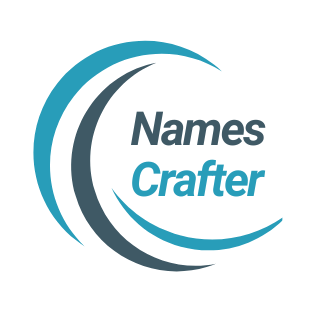The Secret ERP Strategy That Amazon, Tesla, and Apple Don’t Want You to Know
I’ve covered enough technology trends to recognize when something gets overhyped. Every few years, a new “miracle” software promises to change everything—only to disappoint. But some technologies quietly power the world’s largest companies while barely making the headlines. NetSuite is one of those. It’s the ERP backbone for thousands of businesses, yet it rarely gets the flashy PR treatment of Shopify, Salesforce, or even SAP.
Now, if you’ve been anywhere near a growing business in Charlotte, North Carolina, you’ve probably heard the term ERP—Enterprise Resource Planning. Sounds like corporate jargon, right? But let me put it this way: Imagine you’re running Tesla, juggling global supply chains, production deadlines, and customer orders—all while ensuring you don’t accidentally ship a steering wheel instead of a battery pack. That’s where ERP comes in, and NetSuite has quietly become a dominant player.
At Above Bits, a company that has been optimizing ERP solutions for nearly two decades, we’ve worked with businesses that needed to untangle their messy inventory, streamline sales, and finally escape their reliance on Google Sheets as a makeshift accounting system. NetSuite is often the tool we recommend, but, like everything in tech, it’s not perfect. Let’s break down how it’s shaping the future of business, why global giants are using it, and what makes it a double-edged sword.
Why NetSuite’s Popularity is No Accident
There’s a reason why more than 36,000 companies worldwide have adopted NetSuite. When Oracle acquired it in 2016 for $9.3 billion, it wasn’t just a random tech buyout but a strategic move. At the time, NetSuite was already dominating the cloud ERP market, serving everything from startups to Fortune 500 companies. Oracle saw the writing on the wall: businesses needed cloud-based ERP solutions to integrate finance, sales, supply chain, and e-commerce under one roof.
Fast forward to today, and NetSuite is embedded into companies like GoPro, Williams-Sonoma, and even the fast-growing Allbirds footwear brand. These companies needed a platform that could handle everything from inventory forecasting to global tax compliance. And with e-commerce surging—especially after 2020—businesses were drowning in operational chaos. Managing orders, tracking shipments, and handling customer service across multiple platforms became a logistical nightmare. NetSuite became the go-to solution.
In Charlotte, where business growth is accelerating across industries, companies are realizing they need more than just QuickBooks and a Shopify dashboard. That’s why NetSuite development in Charlotte has become such a sought-after service. Above Bits has worked with businesses that hit scaling issues—those moments when manual processes start costing more than they save. When you reach that point, NetSuite becomes the obvious next step.
How Amazon, Tesla, and Apple Approach ERP—And Why It Matters
Amazon is the king of logistics. Every time you order something, and it arrives within 24 hours, it’s not magic—it’s years of ERP optimization. Amazon doesn’t use NetSuite (they’ve built their own proprietary system), but their approach has influenced how ERPs function. The ability to predict demand, optimize warehouse locations, and even automate supplier negotiations is something that NetSuite offers businesses on a smaller scale.
On the other hand, Tesla has been a case study of why ERP matters. In 2018, Elon Musk admitted that Tesla’s production issues weren’t about manufacturing but logistics. Managing parts, predicting demand, and ensuring suppliers delivered on time nearly derailed the company’s Model 3 rollout. Since then, Tesla has implemented AI-driven forecasting in its ERP strategy—something NetSuite has also begun integrating for businesses of all sizes.
Apple, known for its tight control over supply chains, relies on ERP in a way most people don’t realize. Every time a new iPhone launches, Apple has already calculated demand down to the SKU level, ensuring minimal overproduction and reducing waste. NetSuite gives mid-sized businesses similar forecasting capabilities without needing Apple’s billion-dollar budget.
For these reasons, Charlotte businesses looking to scale quickly are increasingly turning to NetSuite development in Charlotte. The ability to integrate AI-driven forecasting, automate inventory management, and streamline financials is no longer just for Silicon Valley giants.
The Downsides of NetSuite: What the Marketing Won’t Tell You
Before you rush to sign a contract, let’s talk about the other side of NetSuite—the part that big companies don’t mention in their case studies.
One of the biggest complaints? Pricing. NetSuite isn’t cheap, and Oracle has a reputation for “flexible” pricing models, which often translates to costs creeping up over time. Some small businesses in North Carolina have been caught off guard when they realized their NetSuite costs skyrocketed due to additional modules and user licenses. It’s a classic enterprise software move—hook businesses in with the promise of scalability, then charge them for every extra feature they didn’t initially think they needed.
Then there’s the complexity. NetSuite is powerful, but it’s also not something you just turn on and start using. Unlike Shopify, which prides itself on user-friendliness, NetSuite requires a learning curve. Without proper customization, it can feel like driving a Formula 1 car when you only needed a reliable pickup truck. Companies often turn to specialized teams like Above Bits for proper setup and customization.
Another issue? Integration with other tools isn’t always as seamless as advertised. While NetSuite boasts hundreds of integrations, real-world implementations often require additional development work to make everything function smoothly. This is particularly relevant for Charlotte businesses relying on specialized e-commerce platforms, CRM tools, or legacy systems.
That said, despite these challenges, businesses keep choosing NetSuite. The reason? When implemented correctly, it offers an unmatched level of control and automation. And that’s where companies like Above Bits step in—ensuring businesses aren’t just buying an ERP but making it work for their specific needs.
NetSuite Development in Charlotte: The Local Factor
The rise of NetSuite development in Charlotte isn’t just a coincidence. The city’s booming business scene has created a demand for scalable solutions that can handle rapid growth. From local manufacturing firms to e-commerce brands looking to compete with national retailers, businesses in Charlotte realize that traditional systems don’t cut it anymore.
At Above Bits, we’ve seen firsthand how businesses struggle when they outgrow their original software stack. Many start with simple solutions—QuickBooks for accounting, a Shopify store, and maybe a CRM like HubSpot. But as sales increase, so does complexity. Suddenly, orders start slipping through the cracks, inventory becomes a guessing game, and managing suppliers becomes a full-time headache. That’s when the transition to NetSuite makes sense.
Of course, getting there isn’t always smooth. Businesses often underestimate the implementation process, thinking they can handle it in-house. However, ERP migrations are notorious for going over budget and over time when managed poorly. That’s why we focus on guiding businesses through the process, ensuring they get the full benefits without the usual pitfalls.
How NetSuite is Evolving: AI, Automation, and Smarter Business Decisions
NetSuite isn’t the same ERP it was five years ago. Like everything else in tech, it’s evolving—and fast. One of the biggest game-changers? Artificial Intelligence. Oracle, which owns NetSuite, has been pouring resources into AI-driven automation, predictive analytics, and machine learning capabilities that give businesses a serious edge.
For example, one of the latest features NetSuite introduced is its AI-powered Cash 360 tool, which helps businesses predict cash flow with almost eerie accuracy. It considers historical financial data, current transactions, and market trends to give CFOs a realistic view of their future finances. This tool separates companies that survive economic downturns from those that don’t.
Then there’s automation. NetSuite has been aggressively expanding its SuiteFlow functionality, allowing businesses to automate workflows without needing a full-time developer. Whether it’s automating invoicing, approvals, or order processing, the goal is to remove human bottlenecks. Businesses in Charlotte looking to optimize their processes are already using this to reduce operational costs and eliminate repetitive tasks.
Above Bits has worked with businesses transitioning from outdated ERP setups where employees manually entered data across multiple systems. When we implemented NetSuite’s automation features, the time savings were immediate. It’s a perfect example of how the right ERP doesn’t just help you keep up—it enables you to get ahead.
What Happens When NetSuite Goes Wrong? The Cost of Poor Implementation
NetSuite’s power comes at a cost. If implemented poorly, it can become more of a burden than a benefit. This is something many businesses realize only after they’ve gone all-in.
One of the most common mistakes is companies trying to rush implementation. NetSuite is a complex system, and businesses that expect a smooth transition in a few weeks often end up with a nightmare on their hands. Some side effects are poorly mapped data, broken integrations, and frustrated employees.
Another issue? Underestimating the need for customization. NetSuite is not a plug-and-play solution like Shopify or QuickBooks. While it offers many features out of the box, getting it to work the way a specific business needs often requires custom development. That’s where NetSuite development in Charlotte becomes critical. Businesses that take the time to tailor their ERP experience end up seeing the most significant returns on their investment.
Then there’s the issue of user training. Many companies assume employees will just “figure it out.” Spoiler alert: They won’t. Without proper training, adoption rates plummet, and businesses end up paying for an expensive system that no one actually knows how to use.
This is why Above Bits emphasizes proper onboarding and ongoing support. We’ve worked with businesses that initially thought NetSuite was the problem, only to realize their implementation strategy was the real issue. Once we helped them refine their approach, they saw immediate improvements in efficiency and accuracy.
Charlotte’s Growing Need for ERP Expertise
Charlotte isn’t just a banking and finance hub—it’s a growing tech and e-commerce center. With businesses expanding faster than ever, the demand for NetSuite development in Charlotte has skyrocketed. Companies that once relied on simple accounting software or manual processes are now facing the reality that scaling requires better systems.
Manufacturing companies in North Carolina are using NetSuite to manage supply chains more efficiently. Retailers are using it to track inventory across multiple sales channels. Even local service-based businesses find value in their CRM and financial automation tools.
Above Bits has been at the forefront of this shift, helping businesses integrate NetSuite in a way that actually works for them. With almost two decades of experience in ERP development, we understand the pain points businesses face—and how to solve them.
NetSuite vs. The Alternatives: What’s the Right Choice?
Of course, NetSuite isn’t the only ERP on the market. Competitors like SAP Business One, Microsoft Dynamics 365, and even newer platforms like Odoo all claim to offer similar solutions. So why do so many businesses still choose NetSuite?
The answer often comes down to scalability and cloud-based flexibility. Unlike SAP, which is notoriously complex and expensive to customize, NetSuite offers a more modular approach. Microsoft Dynamics, on the other hand, integrates well with Office 365 but doesn’t always provide the same level of automation as NetSuite.
Then there’s the question of long-term costs. NetSuite’s pricing can be high, but when implemented correctly, it often pays for itself in efficiency gains. Businesses that optimize their system use can significantly reduce manual labor, improve forecasting, and eliminate costly errors.
Charlotte businesses looking for the best fit should consider not just the upfront cost but the total cost of ownership. The right ERP grows with you, not one that requires constant reconfiguration every time your business scales up.
The Future of ERP and Why It Matters
We’re entering an era where businesses can’t afford to ignore ERP. With AI-driven automation, predictive analytics, and cloud-based integrations becoming standard, companies that fail to upgrade their systems will be left behind.
Above Bits has seen firsthand how businesses in Charlotte are adapting. Those investing in proper NetSuite development in Charlotte are positioning themselves for long-term success. Those that hesitate often find themselves playing catch-up.
If you’re serious about optimizing your business operations, it’s worth looking into how NetSuite can help. And if you want to ensure it’s done right, working with an experienced team like Above Bits can make all the difference.
To learn more about how we can help, check out our NetSuite development in Charlotte by Above Bits. The future of business automation is here—are you ready to take advantage of it?







